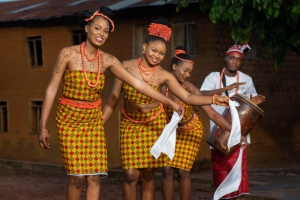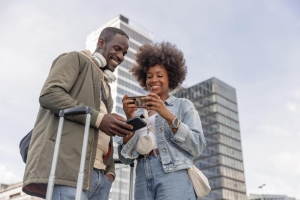Understanding local greetings and communication styles is essential for a respectful and enriching travel experience. In Eastern and Southern Africa, greetings are more than just polite formalities—they are a sign of respect and hospitality. Here’s what you need to know to make a great first impression.
1. Greetings: A Sign of Respect
In most African cultures, greetings are an important ritual. A quick “hello” may be considered rude, so take time to engage in proper greetings.
- Handshakes 🤝: A firm handshake is common, often lasting longer than in Western cultures. In some communities, a handshake may be accompanied by a light touch on the arm or a finger snap.
- Two-Handed Shake 🙌: In countries like Zimbabwe and Botswana, using both hands to shake shows extra respect.
- Bowing or Slight Head Nod 🙇: In some cultures, a slight bow or head nod is a sign of deference, especially when greeting elders.
- Clapping 👏: In Malawi and some rural areas of Zimbabwe, clapping hands before or after a handshake is a customary greeting.
Common Greeting Phrases:
Learning a few local phrases will go a long way in building rapport:
- Swahili (Kenya, Tanzania, Uganda, Rwanda, DRC, Comoros):
“Jambo” (Hello)
“Habari?” (How are you?) – Response: “Nzuri” (Good) - Shona (Zimbabwe):
“Mhoro” (Hello)
“Makadii?” (How are you?) – Response: “Ndakanaka” (I am well) - Zulu (South Africa, Eswatini):
“Sawubona” (Hello) – Response: “Ngiyaphila” (I am well) - Chichewa (Malawi, Zambia, Mozambique):
“Muli bwanji?” (How are you?) – Response: “Ndili bwino” (I am fine)
2. Respectful Communication
- Use Formal Titles 👑: When addressing elders or professionals, use titles like “Mzee” (Swahili for elder) or “Baba/Mama” (Father/Mother) as a sign of respect.
- Politeness Matters 💬: Being overly direct can be seen as rude. It’s common to ease into a conversation with small talk before discussing business or asking for something.
- Lower Your Voice 📢: Speaking too loudly, especially in public spaces, may be seen as aggressive.
- Eye Contact 👀: In many cultures, direct eye contact is seen as a sign of confidence, but in some traditional settings, avoiding prolonged eye contact with elders is a sign of respect.
3. Body Language & Personal Space
- Right Hand for Gestures ✋: In many African cultures, the left hand is considered unclean. Always give or receive items with your right hand.
- Personal Space 🌍: While urban settings may have more relaxed norms, some cultures value close interactions, such as standing near or lightly touching when conversing.
- Thumbs-Up & Nods 👍: These are generally positive gestures, but pointing with one finger can be seen as rude—use an open hand instead.
Embrace the Local Culture!
Taking time to learn local greetings and communication styles will help you connect with people on a deeper level.








